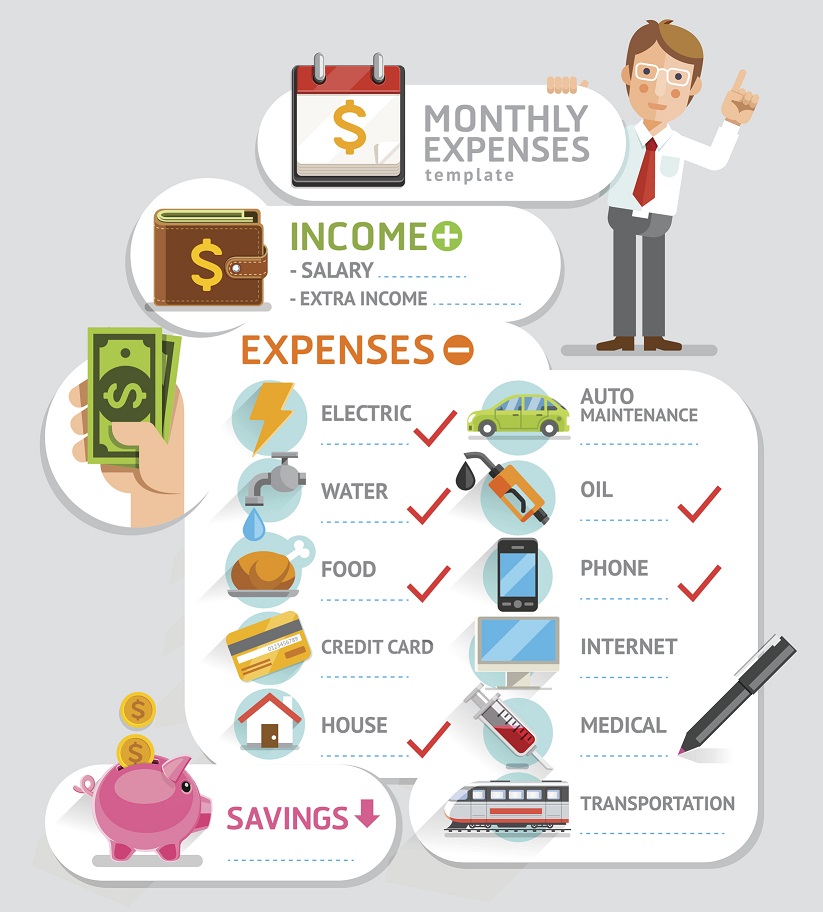You and your money
We all work hard for our money, but it can be frustrating when there seems to be very little left once all the bills have been paid. Whether you’re committed to a mortgage, monthly rent, child care fees or utility bills they all add up and certainly need to be paid before you can really start to ‘enjoy’ whatever’s left.
It goes without saying that good money management can go a long way towards getting you through the month – but it’s not something many of us tend (or want) to consider. Invariably, there always seems to be an unexpected expense of some kind and all plans to set so much aside go firmly through the window. So what’s the key to success?
Firstly, there’s nothing more essential (or basic) than simply putting pen to paper. By making a list of your monthly income and outgoings, you can see at a glance exactly where your money is going. By doing this exercise, you’ll most likely recognise definite areas for improvement. In fact, here’s a typical example:
5 x daily lunches in the staff canteen @ say, £6.00 per day = £30.00 a week
£30.00 a week x 52 weeks a year = £1,560.00 a year!
So would you feel the same if your employer said they’d deduct £1560.00 a year from your salary … just for your lunch? Absolutely not!
Of course, this is just a very simple example but the same principle applies to travel fares and general day to day expenses. If you travel to work by public transport, can you buy a monthly or yearly ticket? (Just remember to consider any annual leave you might take whilst budgeting since this usually amounts to at least a month a year).
If you’re already in debt – or dependent on a regular overdraft – you might also want to consider ways to reduce it. By simply setting aside a certain amount each month this can easily be achieved. Again, it’s all too easy to simply overlook it but in the meantime both your debt (and associated bank charges) continue to increase. A simple way to do this is to set up a savings account and have a direct transfer to it on pay day. Where possible, avoid ‘instant access’ savings accounts since you might be tempted to make withdrawals when you find yourself a little short. Instead look for one with a good interest rate and withdrawal period. It’ll make you think twice about withdrawing funds until you absolutely need to.

